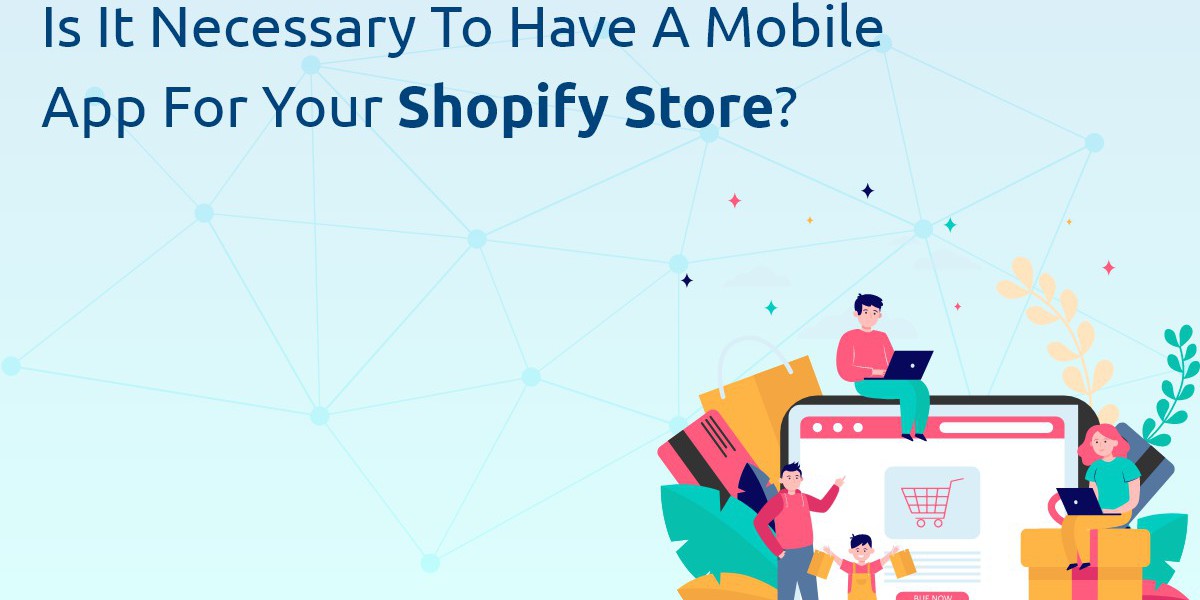In today's digital age, mobile commerce is booming, and customers expect seamless, convenient shopping experiences. With the majority of online shopping done via mobile devices, the question arises: is it necessary to have a mobile app builder for your Shopify store? This blog will explore the benefits and considerations to help you decide whether a mobile app is essential for your business.
The Rise of Mobile Commerce
Increasing Mobile Usage
Mobile device usage has skyrocketed over the past decade. According to recent statistics, over 50% of global web traffic comes from mobile devices. Consumers are using their smartphones and tablets not only to browse but also to make purchases. This shift makes it crucial for businesses to optimize their online presence for mobile users.
Consumer Expectations
Today's consumers expect a seamless and convenient shopping experience. Mobile apps offer faster load times, better navigation, and enhanced features compared to mobile websites. As a result, having a mobile app can meet these high expectations and provide a superior user experience.
Competitive Edge
In a competitive market, having a mobile app can set your business apart from others. Many retailers are still relying solely on mobile websites. By offering a mobile app, you can differentiate your brand and attract more customers.
Benefits of Having a Mobile App for Your Shopify Store
Enhanced User Experience
Seamless Navigation
Mobile apps are designed specifically for mobile devices, ensuring smooth and intuitive navigation. This allows users to browse products, categories, and pages with ease, reducing friction and improving the overall shopping experience.
Faster Load Times
Mobile apps load faster than mobile websites because they store data locally on the user’s device. This speed enhances the user experience and reduces bounce rates, leading to higher customer satisfaction.
Personalized Experience
A mobile app can provide a highly personalized shopping experience by leveraging user data. You can offer tailored recommendations, personalized content, and exclusive deals based on individual preferences and browsing history.
Increased Customer Engagement
Push Notifications
Push notifications are a powerful tool for keeping customers engaged. They allow you to send real-time updates about new products, promotions, and sales directly to users’ devices. Personalized notifications can also remind customers of abandoned carts, encouraging them to complete their purchases.
Loyalty Programs
Mobile apps make it easy to implement and manage loyalty programs. Rewarding customers for their purchases, referrals, and other actions can boost engagement and foster long-term loyalty. Loyalty programs can also increase customer retention and encourage repeat purchases.
In-App Messaging
In-app messaging provides a direct line of communication with your customers. You can address queries, provide support, and offer personalized assistance, enhancing customer satisfaction and trust in your brand.
Higher Conversion Rates
Streamlined Checkout Process
A complicated checkout process is one of the main reasons for cart abandonment. Mobile apps can simplify the checkout process by storing user information and offering multiple payment options. This convenience results in a smoother and quicker checkout experience, leading to higher conversion rates.
Secure Transactions
Mobile apps can offer secure payment gateways and encryption methods to protect user data. When customers feel confident about the security of their transactions, they are more likely to complete their purchases.
One-Click Purchases
Mobile apps can offer one-click purchasing options, making it easier for users to buy products with a single tap. This feature reduces the steps needed to complete a purchase, increasing the likelihood of impulse buys and boosting overall sales.
Advanced Analytics and Insights
User Behavior Tracking
Mobile apps provide detailed analytics and insights into user behavior. You can track how customers interact with your app, what products they view, and where they drop off in the buying process. This data is invaluable for understanding your customers and optimizing your app for better performance.
Sales and Performance Metrics
With a mobile app, you can easily monitor key performance indicators such as conversion rates, average order value, and customer retention rates. These metrics help you measure the effectiveness of your marketing strategies and make data-driven decisions to improve your business.
A/B Testing
Mobile apps allow you to conduct A/B testing on various features and design elements. By testing different versions of your app, you can determine which changes lead to higher engagement and conversions. This continuous optimization ensures that your app remains effective and user-friendly.
Improved Brand Loyalty and Recognition
Constant Brand Presence
Having a mobile app ensures your brand is constantly visible on your customers' devices. Every time they see your app icon, it reinforces your brand, keeping your business top-of-mind. This constant visibility helps build a stronger brand identity and loyalty.
Enhanced Customer Support
Mobile apps can offer superior customer support through features like in-app chat, FAQs, and help centers. Quick and efficient customer service is crucial for maintaining customer satisfaction and loyalty. By offering support directly through your app, you make it easier for customers to get the help they need.
Community Building
Mobile apps can help you build a community around your brand. Features like user reviews, ratings, and social sharing options allow customers to interact with each other and share their experiences. A strong community fosters customer loyalty and attracts new users through word-of-mouth recommendations.
Considerations Before Developing a Mobile App
Cost and Resources
Developing a mobile app requires a significant investment of time and money. You need to consider the costs of development, maintenance, and updates. Additionally, you’ll need resources to manage and promote the app effectively.
Target Audience
Consider whether your target audience would benefit from a mobile app. If your customers primarily shop on a desktop or have limited use for a mobile app, it might not be the best investment. Conduct market research to understand your customers' preferences and behaviors.
Technical Expertise
Developing and maintaining a mobile app requires technical expertise. You may need to hire developers or work with a mobile app development agency. Ensure you have the necessary skills and resources to manage the app effectively.
Existing Mobile Website
Evaluate the performance of your current mobile website. If it already provides a good user experience and meets your business needs, a mobile app may not be necessary. However, if there are significant limitations, a mobile app could offer a better solution.
Conclusion
In conclusion, while it may not be strictly necessary for every Shopify store to have a mobile app, the benefits are substantial. A shopify mobile app builder can significantly enhance the user experience, increase customer engagement, and drive higher conversion rates. It also offers advanced analytics, improved brand loyalty, and better customer support.
However, it’s essential to consider factors such as cost, target audience, technical expertise, and the performance of your existing mobile website before deciding to develop a mobile app. By weighing these factors carefully, you can determine whether a mobile app is the right investment for your Shopify store.
Ultimately, a well-designed mobile app can provide a competitive edge in the crowded e-commerce market, helping you attract and retain customers, boost sales, and grow your business.



